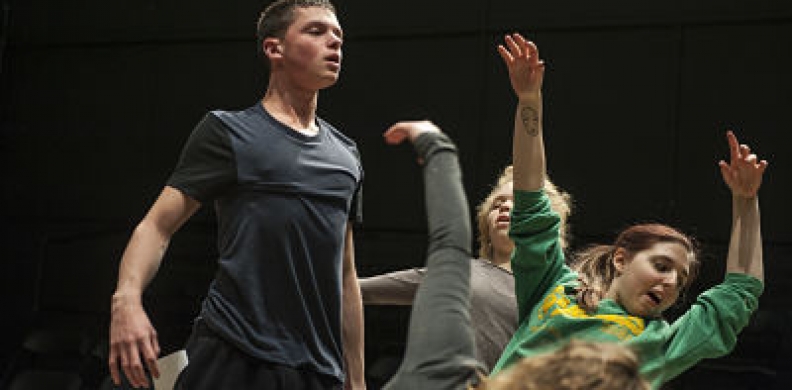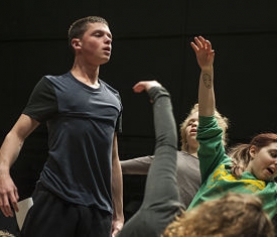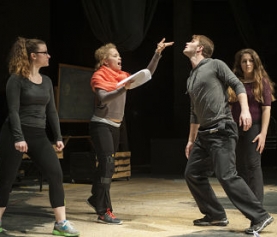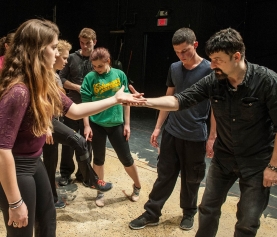
Who’s Play is it Anyway?
Early on in the process, I was talking with Elizabeth Colandene (Mary) about how Mary doesn’t really speak much in The Annunciation, and it’s interesting that in a play that ostensibly focuses on the Divine Conception we hear more from Joseph than we do the Virgin Mary (whereas we only get a few short lines of dialogue from Mary, we get a whole page-long monologue from Joseph). Because she speaks so little, it’s a bit more difficult to gain insight into what Mary, the dramatic character, might be thinking or feeling in that moment speaking to Gabriel or convincing her husband that the child she bears is God’s. All of that is subtextual. Joseph, on the other hand, is a veritable open book—we know exactly how he’s processing his doubt about his wife’s fidelity because he comes out and says it…and then repeats it for good measure. So, why do we think that The Annunciation is Mary’s play, and not Joseph’s? Is this a play about Mary?
Well, to be honest, this play honors both Mary and Joseph—in some ways it’s Mary’s play and in other ways it’s Joseph’s. This ambiguity stems from the fact that The Annunciation is just one small part of a whole epic narrative. It simultaneously launches Mary’s story, and encapsulates Joseph’s whole arc. So, while yes we do get to see more of Joseph’s inner machinations and bear witness to his internal conflict and resolution, Mary’s role has just begun to unfold.
In the Wakefield text, from which we drew the basis for our script, Mary actually has a much more active role than in other Corpus Christi cycles of that time. There are actually textual indications that the Wakefield playwright added Mary into several of the plays in the cycle—in these instances, the dialogue is written with a distinct rhythmic pattern that many scholars attribute to a single author. In this play text, each time Mary reappears she’s a little older, a little wiser, and taking on more of the dramatic action. Her speeches gradually get longer, she appears onstage more, and eventually becomes a force driving the action forward. The Wakefield even concludes with Mary bidding Jesus’ disciples to go forth and preach the word of God (whereas in the Bible, the Holy Spirit appears and delivers this message). How awesome that the final image of this play cycle is an older woman presiding over a group of men, and delivering the word of God? What a radical notion that a woman could be the impetus for Man’s salvation? Then again, Mary is chosen for that specific reason—to bear the son of God, and to spark the story of Man’s redemption.
So, I suppose Joseph can have The Annunciation. After all, Mary has the last word.








